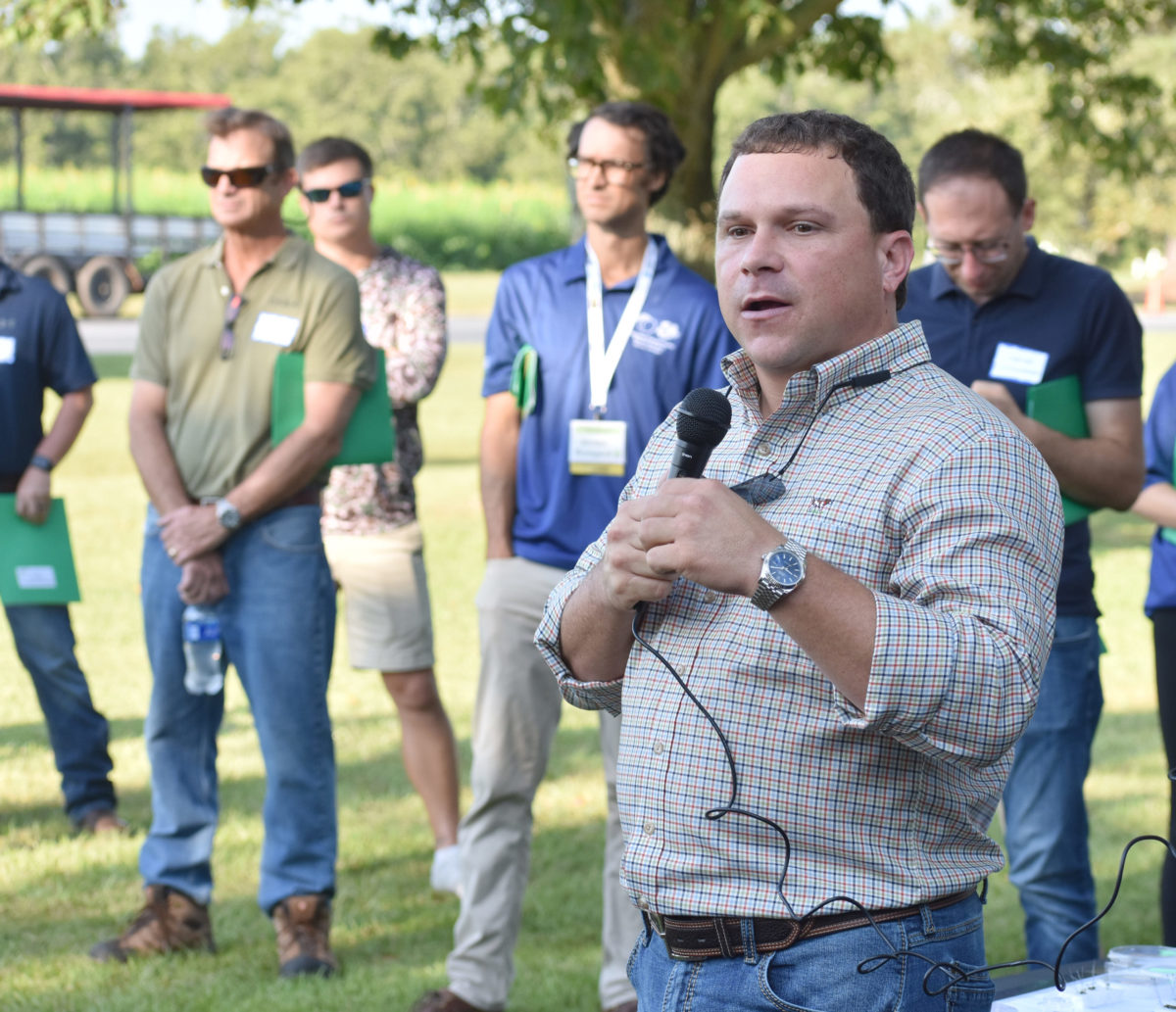By Clint Thompson
It did not take long for Georgia Ag Commissioner Tyler Harper to determine the impact Hurricane Idalia had on his state’s No. 1 industry, especially the pecan crop.

His group was in Southeast Georgia the day after the storm moved through the region on Aug. 30. They surveyed damage and spoke with farmers impacted by the natural disaster.
Harper spoke at a pecan meeting held in Byron, Georgia last Thursday and focused on the needs growers in Southeast Georgia have following the devastating storm.
“Agriculture took a pretty significant hit during Hurricane Idalia. Our team, before the hurricane and even after the hurricane, we had ramped up, getting ready to ensure that we’re ready to deploy and help those that need the help. We were on the ground the day after the storm. Our team’s been there ever since,” Harper said. “The pecan crop got hit substantially hard. This year’s pecan crop in the impacted zone, an estimated 50% to 60%-plus in losses and probably upward to 20% loss in pecan trees in that part of the state.
“Other commodities got hit, too. If there were corn or tobacco left in the field down there, they were pretty well demolished. Cotton twisted up pretty bad. In some areas it got impacted pretty hard. We obviously won’t really know what any yield losses are for a couple of weeks until cotton harvests really kick off. There may be some places where it might not be harvestable.
“Ag did take some significant hits in that part of the state. With it being our No. 1 industry, it’s vital that we find ways to ensure that we help those farmers, those producers bounce back to ensure that our No. 1 industry continues to be successful.”
Harper emphasized the importance of growers, impacted by the storm, relaying disaster information through the proper channels so help can arrive in a timely manner.
“Definitely, if you’re a grower and you were impacted, ensure that you’re reaching out to your local USDA FSA (U.S. Department of Agriculture Farm Service Agency) office, your local UGA (University of Georgia) Extension agent or even our office at the Department of Ag; ensure that you’re getting that information to where it needs to go. That helps us ensure that we have the data to justify those requests for disaster aid and disaster assistance,” Harper said.










